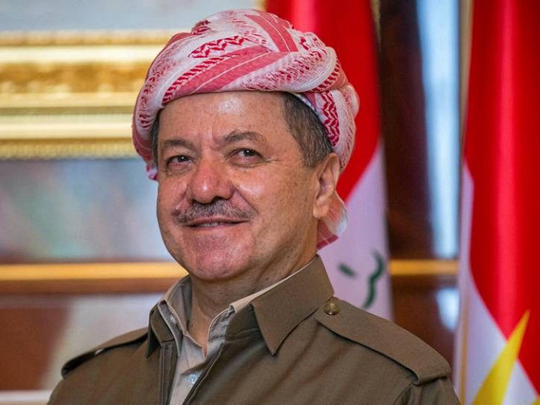
There’s a lingering impression in Washington that Iraqi Kurdistan is what it was five years ago, before the rise of Daesh (the self-proclaimed Islamic State of Iraq and the Levant): A peaceful, prospering, emerging pro-western democracy whose aspirations for full independence from Iraq are increasingly hard to ignore.
Unfortunately, a great deal has changed since then — thanks to war, the retreat of the United States from the region and the Kurds’ own dysfunctions. As Daesh slowly crumbles to its south and west, Kurdistan is politically and economically broken. President Masoud Barzani remains in office four years after his term ended, and parliament has not met in almost two years. The government is deeply in debt and can scarcely afford to pay the three-quarters of the workforce who are state employees. The army and security services are divided into rival factions.
Barzani’s reaction to this distress has been to schedule a referendum on Kurdish independence for September 25. The initiative has been rejected not just by the Iraqi federal government, but also by Kurdistan’s powerful neighbours Iran and Turkey, as well as the US. More significantly, it is being viewed even by staunchly pro-independence Kurds as evidence that the region’s politics has reached a dangerous dead end. The referendum is “an excuse by Kurdish leaders to remain in power”, says Shaswar Qadir, the owner of Kurdistan’s independent NRT television network. “The younger generation doesn’t know anything about their fight in the mountains against Saddam Hussain. So the old leaders need another excuse to run the country for another 26 years.”
Those bitter words reflect Qadir’s perspective as one of a rising generation of Kurds — and Iraqis — struggling over how to create stable political institutions and a working economy amid the mess of sectarian conflicts, extremist movements and corrupt establishments littered across the post-Daesh landscape. Their challenge, like it or not, is “nation-building” — and they desperately need US help. An independent television network is, at least, a place to start. While most Iraqi media is controlled by the government or political parties, Qadir is one of Kurdistan’s few self-made magnates: Born in the city of Sulaymaniyah, he started peddling electronic games as a teenager and became one of Kurdistan’s largest real estate developers before founding NRT in 2011, at the age of 32.
Launched under the slogan “courage, balance, truth”, the network saw its first office attacked and burned within a week of opening; Qadir blames militants from the Patriotic Union of Kurdistan (PUK), one of the region’s two historical political forces. Kurdish authorities have closed NRT’s offices and arrested its journalists on multiple occasions. Yet, it has persisted and flourished. The right course, Qadir says, is not a referendum, but a free and fair election for a new parliament, something that is due by November but that, like the presidential vote, is likely to be postponed. Qadir freely admits his interest: If an election is held, he intends to form his own electoral list and make a bid to become prime minister. His aim is to mobilise Kurdistan’s post-Saddam generation.
One goal of Qadir’s visit to Washington was to revive US interest in promoting Kurdish democracy, which all but evaporated during the administration of former president Barack Obama. “The United States didn’t focus on those issues, and that undermined all that we accomplished since 2003,” he said. Persuading the administration of US President Donald Trump to make Kurdish elections a priority is a tall order. Yet, US Congress may listen to Qadir’s compelling point: “The more we have free and fair elections,” he says, “the less chance we will get into instability and violence.”
— Washington Post
Jackson Diehl is the deputy editorial page editor of the Washington Post.








